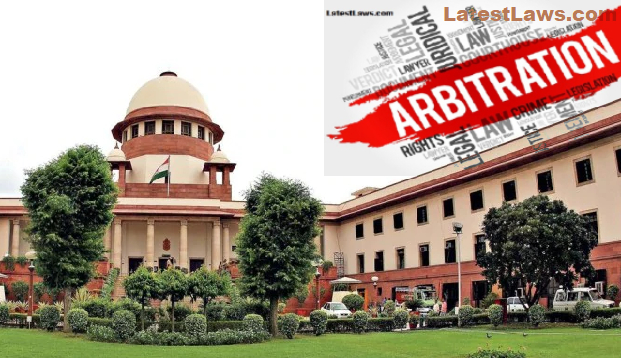
This article is written by Debasmita Goswami pursuing a Certificate Course in Arbitration: Strategy, Procedure and Drafting from LawSikho.
Table of Contents
Introduction
The sole intention of the legislature behind the enactment of the Arbitration and Conciliation Act, 1996 (“The Act”) in accordance with the United Nations Commission on International Trade Law (“UNCITRAL Model Law”) was to ensure minimal to nil intervention of the judicial courts in the adjudication of the disputes, to seek speedy redressal of the cases and ensuring the party autonomy. Although the intention of the said legislation stands clear, there exist certain provisions under the Act which permit the judicial intervention of the courts. For Instance, the parties approach the judicial courts for seeking interim measures under Section 9 of the Act, court’s intervention is further sought wherein the parties approach the court for the appointment of the Arbitrator under Section 11(6) of the said act, similarly, the court intervenes in the matters wherein the award passed by the arbitrator is in contravention to the Public Policy of India as iterated under Section 34 of the Act, further for seeking extension of the time period for completion of the Arbitration proceedings the party approaches the court for seeking extension as has been enshrined under Section 29A of the Act. Even for the enforcement of an award, the party needs to approach the court having the competent jurisdiction for its enforcement complying with the provisions of the Civil Procedure Code, 1908 (“The Code”) and giving the award the same essence as that of a court’s decree. However, Section 5 of the Act has put a cap on the extent of the judicial intervention of the courts and has expressly mentioned that “…in matters governed by this Part, no judicial authority shall intervene except where so provided in this Part.” Therefore, the intent behind inserting this Section stands undisputed. Hence, through this article the author has attempted to answer one of the most debatable propositions of law, that is, whether an arbitrator’s decision on the jurisdiction be challenged under Article 227 of the Constitution of India. 
Jurisprudence in India
In order to substantiate the above-mentioned proposition one first needs to understand the jurisprudence laid down by the Supreme Court in its recent landmark judgment of Bhaven Construction Vs. Executive Engineer Sardar Sarovar Nigam Ltd. & Anr decided on January 6th, 2021 wherein the Apex Court has expressly mentioned that parties do have a right to approach the High Court under Article 227 of the Indian Constitution only if the parties feel aggrieved and are of the opinion that the award passed is in contravention, indeed malafide and contrary to the fundamental principles of the country, therefore, having no other recourse or being remediless the parties may opt to seek for help or measures from the judicial courts only in the rarest of the rare case. The sole intention of the Hon’ble bench, led by Justice N.V. Ramana through its judgment, stands crystal clear that Apex Court wants to maintain the sanctity and the essence of the arbitration procedure, and the award passed by the Tribunal, therefore, wants to promote minimal court intervention in the arbitration proceedings. Similar intent was also followed while inserting the new amended Section 36 of the Act wherein, it wanted to obstruct the frivolous applications for the challenge of the awards.
Bhaven Construction is a landmark judgment wherein the Apex Court has identified and re-iterated the significance of the independent existence of a statutory provision and has made it clear that just because the scope and the ambit of Article 227 of the Indian Constitution are broad it doesn’t necessarily mean that the parties may seek remedies under its garb being a constitutional provision as per their whims and fancies, nor the judicial courts can intervene in the Arbitration proceedings as per their convenience. Instead, the courts must first identify themselves with the fact whether the parties have any alternative remedy under the statute, the courts must also lay emphasis on the intention of the parties for taking the judicial recourse and must apply their mind before entertaining any such appeals as has been rightly observed in the landmark case of ONGC Ltd. V. Western Geco International Ltd. Therefore, it has also been established that the parties first need to acknowledge that there are remedial measures, exhaustive in nature, available under the statute but that shouldn’t be taken for granted and they must regard the essence and sanctity of Section 5 of the said Act. A similar, approach has been laid down by the Apex Court in the case of Nivedita Sharma V. Cellular operators Association of India and Others wherein the court has rightly laid down that if an alternative remedial mechanism has been laid down in the statute then, in that case, filing writ petitions as the remedial recourse should not be encouraged. Further, it has been rightly established by the legal experts that upholding the interpretation of the non – obstante clause under Section 5 of the Act in consonance with what has been stipulated under Section 37(1) of the Act will further narrow down the scope of approaching the courts under Article 227.
A similar interpretation has been laid down in the erstwhile landmark judgment of the Supreme Court in Deep Industries Limited Vs Oil and Natural Gas Corporation Limited and Another the apex court has aptly iterated that “an arbitrator’s jurisdiction can be challenged only along with the final award and the case must fall under “extremely exceptional category.” The Apex Court through this case has clarified and has relied on Section 115 of the Code wherein the provision expressly states that if there is an alternative scope of seeking remedy or filing an Appeal under a statutory act then in that scenario no revision shall lie from that order. Further, through this judgment, the Apex court has further clarified that no challenge under Article 227 of the Indian Constitution shall lie from Section 16 of the Act wherein the tribunal has the competence to rule on its own jurisdiction. However, it can only be challenged if the said order is that of the final award and not of any Interlocutory Application. Subsequently, it also opened its doors for the Second Appeal arising out of Section 37 of the Act with respect to setting aside the Arbitral award under Section 34 of the said Act. However, this recourse should not be misused and taken undue advantage of, as has been repeatedly iterated in the Bhaven Construction case. Furthermore, the Supreme Court in the case of Punjab State Power Corporation Ltd. Vs. Emta Coal Ltd. & Anr. has made it clear and precise by reasoning out that recourse to the Writ Jurisdiction as a remedial mechanism against an arbitration application can only be possible wherein there is a lack of inherent jurisdiction. The Writ Petition of the Petitioner, in this case, was duly dismissed and the court imposed a hefty fine of INR 50, 000/- on the petitioner.
Concluding remarks
In a nutshell, it may be concluded that the Apex Court through its judicial pronouncements has manifested the significance of the non-intervention mechanism of the judicial courts in the arbitration proceedings. Through this, the Court has initiated to uphold the true meaning and intent of the Arbitration Act and has pledged to not dismantle the aim and the intention with which the legislators have enacted the statute as is evidenced through their reasoning given in the above-mentioned judgments. The “Principle of Unbreakability” as has been relied on by the Apex Court in the case of P. Radha Bai v. P. Ashok Kumar comes as a huge breather which has been enshrined in “Dr. Peter Binder in International Commercial Arbitration and Conciliation in UNCITRAL Model Law Jurisdictions, 2nd Edition” whose portion has been iterated below: “…….an unbreakable time-limit for applications for setting aside was sought as being desirable for the sake of “certainty and expediency” the prevailing view was that the words ought to be retained since they presented the reasonable consequence of Article 33.” As per the interpretation of this principle, it can be safely put that even though parties under the arbitration take the court’s recourse in certain cases even then they are bound by certain limitations, non-compliance of which will lead to further complications. In this regard, I in no way intend to say that Section 5 of the Act being the non- obstante clause will supersede the constitutional provision under Article 227 but it is on the onus of both the courts and parties to not misuse their powers and remedies as granted by the Act.
References
- https://www.latestlaws.com/latest-news/sc-writ-against-dismissal-of-arbitration-application-by-arbitrator-can-be-allowed-only-on-the-ground-of-lack-of-inherent-jurisdiction-read-order/ (Last retrieved on 21st June 2021, 10:00 A.M.)
- https://www.lawsenate.com/publications/articles/ARBITRATOR%E2%80%99s_DECISION_ON_THE_JURISDICTION,_CAN_BE_CHALLANGED_ONLY_ALONG_WITH_THE_FINAL_AWARD.pdf (Last retrieved on 20th June 2021, 7:30 P.M.)
- http://www.lawstreetindia.com/experts/column?sid=534, (Last retrieved on 19th June 2021, 8:00 P.M.)
- https://indiacorplaw.in/2021/01/bhaven-construction-case-expounding-the-tussle-between-constitutional-right-and-arbitral-process.html (Last retrieved on 19th June 2021, 9:30 P.M.)
Students of Lawsikho courses regularly produce writing assignments and work on practical exercises as a part of their coursework and develop themselves in real-life practical skills.
LawSikho has created a telegram group for exchanging legal knowledge, referrals, and various opportunities. You can click on this link and join:
 Serato DJ Crack 2025Serato DJ PRO Crack
Serato DJ Crack 2025Serato DJ PRO Crack








 Allow notifications
Allow notifications


